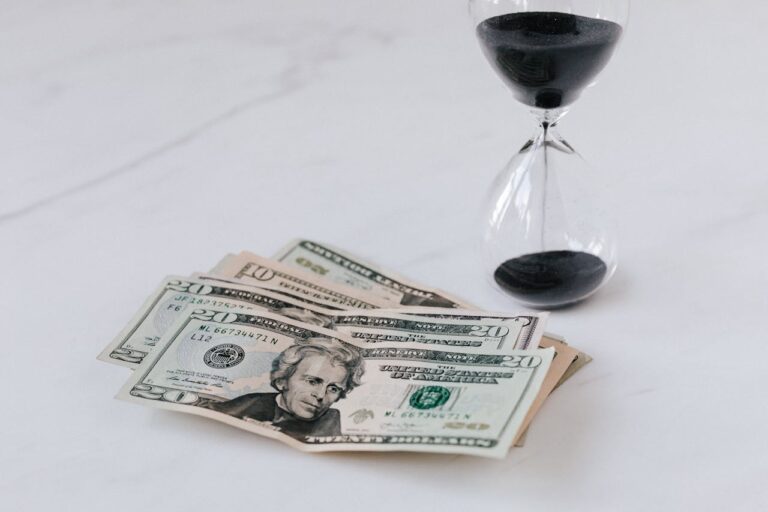Write Us: hello@ali5.org
Financial Freedom vs. Financial Stability: Why the Difference Matters
Financial freedom and stability aren’t the same thing. Learn the key differences, why they matter, and how to build both, without sacrificing your peace of mind.

Most people toss around phrases like “I just want to be financially secure” without ever thinking about what that actually means. Is it enough to pay bills? Being debt-free? Having total control over your time?
The problem is, financial stability and financial freedom often get lumped together like they’re the same thing, but they’re not. Not even close.
One keeps you from drowning. The other lets you swim wherever the hell you want.
Let’s break down what that means in real life, and why it matters more than ever.
What Is Financial Stability?
Financial stability is your financial baseline. It means your foundation is solid. You’re not in crisis mode. You’ve got a steady paycheck, bills are covered, and you’re not relying on credit cards to get through the month.
If something goes wrong, your car breaks down, you get a surprise medical bill, you can handle it without spiraling into panic or debt.
Here’s what financial stability usually looks like:
-
You’re not living paycheck to paycheck
-
You have a few months of expenses saved
-
You’re paying down debt or managing it responsibly
-
You stick to a budget and don’t feel like money is constantly slipping through your fingers
-
You’re saving a bit for retirement, even if slowly
It’s peace of mind, but let’s be clear, it’s not freedom. It’s just not being in survival mode.
What Is Financial Freedom?
Now we’re talking next-level. Financial freedom means you’re not dependent on a job, or anyone else, for your financial well-being.
In real life, this looks like:
-
You’ve built income streams that keep paying you whether you work or not
-
You’re not stressing about bills, even if you take a month (or year) off
-
You make decisions based on what you want to do, not what you have to do
-
Your time is yours again
This doesn’t mean you’re lounging on a beach sipping $20 cocktails (unless you want to). It means you’ve designed a life where your money supports you, not the other way around.
The shift here isn’t just about money, it’s about control. Time, energy, choices. That’s the real currency of freedom.
Why the Difference Really Matters
Here’s the thing: most people stop at stability because it feels safe. And in a world where money stress is everywhere, “safe” feels like winning.
But what they don’t realize is they’re still stuck. Still locked into a routine, still trading time for money, still dependent on that next paycheck, even if things look good on the outside.
So ask yourself: Are you working because you want to… or because you have to?
Understanding the difference between stability and freedom helps you see what you’re building.
If your goal is freedom, you start thinking long-term. You start creating assets. You start designing systems that run with or without you.
If your goal is just stability, you’re playing defense.
And no one wins the game just by not losing.
Meet Sarah and Amina
Let’s make this real.
Sarah is financially stable. She’s 35, earns a solid salary, has 6 months of expenses saved, and takes one nice vacation a year. She pays her mortgage on time, keeps a budget, and isn’t drowning in debt.
But her job owns 45 hours of her week. If she got laid off, that security disappears fast. She’s stable, but not free.
Amina, on the other hand, spent five years building a digital product business on the side, templates, guides, courses. She earns $6,000/month passively. No boss. No set hours. If she takes a month off, the money keeps flowing.
She doesn’t have a big house or a flashy car. But she has time. Flexibility. Options. She’s free.
Who do you want to be?
How to Move From Stability to Freedom
The truth? Most people never make this leap because they think it takes millions of dollars or some secret knowledge. It doesn’t.
Here’s how to start moving toward financial freedom, even if you’re starting from stability.
1. Stop Relying on Just One Income Source
If your paycheck is your only income stream, your whole life is riding on one fragile string. That’s risky.
Start asking:
-
What skills do I already have?
-
Can I freelance, consult, or sell something online?
-
Could I turn my knowledge into a paid course, digital product, or service?
Build a side stream, then grow it.
2. Kill Lifestyle Creep
This one’s brutal. You start earning more, and you start spending more. Nicer car, bigger apartment, premium everything.
That’s how people get stuck with golden handcuffs, high income, no freedom.
Instead, keep your lifestyle lean and invest the difference. Buy assets, not liabilities.
3. Start Investing. Now
If your money’s just sitting in savings, it’s shrinking thanks to inflation. Learn to invest.
Start small with:
-
Index funds (low-cost, diversified)
-
REITs (real estate investment trusts)
-
Dividend-paying stocks
-
Online businesses or digital products
The point? Build income streams that don’t require your daily effort.
4. Automate the Boring Stuff
Money systems save mental energy. Automate your:
-
Savings and investing transfers
-
Bill payments
-
Income tracking
This frees up your brain to focus on strategy instead of spreadsheets.
5. Define Your “Enough” Number
You don’t need $10 million to be financially free. You just need to cover your actual life costs.
Figure out your “freedom number”:
-
Add up your monthly bare-bones expenses
-
Add in lifestyle wants (within reason)
-
Multiply by 12
Now you know what kind of income you need to buy your time back.
Quick Recap: Stability vs. Freedom
| Feature | Financial Stability | Financial Freedom |
|---|---|---|
| Income Source | Single (usually job) | Multiple (passive + active) |
| Time Freedom | None | High |
| Focus | Budgeting, saving, survival | Asset-building, scaling, autonomy |
| Risk | Low (short-term) | Higher (but with bigger upside) |
| Stress Level | Lower | Much lower—long term |
Final Thought
Financial stability is a great place to start. Everyone needs that solid foundation. But don’t confuse stability with success.
If you’re craving more time, more choice, more life, you’re chasing freedom.
It doesn’t happen overnight. But it starts the moment you stop thinking like a worker and start thinking like an owner.
So don’t settle for safe. Build smart. Play long-term. And give your future self something better than “I paid all my bills.”
Give them freedom.







